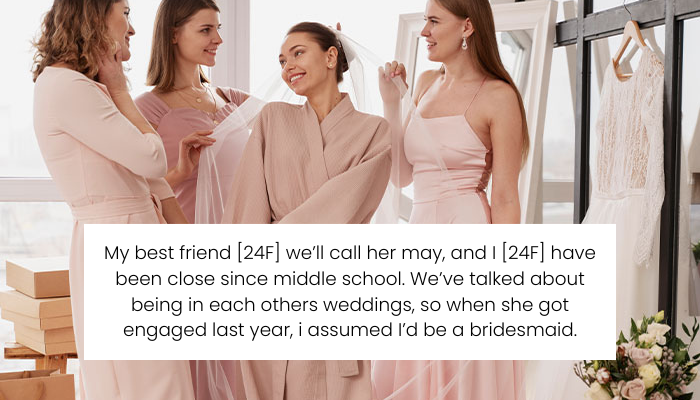Best Friend Left Out of Bridal Party: Reasonable Boundary or Petty Reaction?
When wedding planning collides with friendship expectations, tensions can quickly rise. In this story, a woman is blindsided to learn that she wasn’t included in her best friend’s bridal party, despite a lifelong bond and prior discussions about being in each other’s weddings. Though not a bridesmaid, she’s asked to help extensively with wedding tasks—leading her to draw a firm line. Her refusal to participate in bridesmaid-level duties without the title or acknowledgment sparks accusations of selfishness from their social circle. The situation raises questions about emotional labor, unspoken obligations, and the fine line between friendship and favoritism in modern weddings.
If you’re throwing a bridal party, it makes sense to ask your best friends to be your bridesmaids

A woman opened up about how her BFF, a bride-to-be, didn’t ask her to be a bridesmaid, yet pressured her to help with the wedding planning
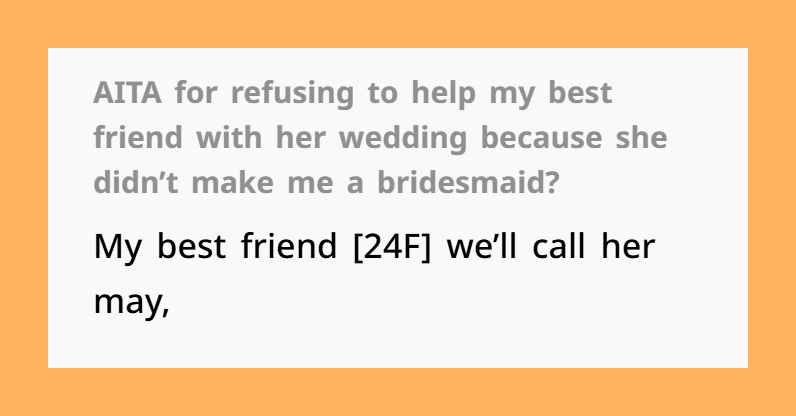
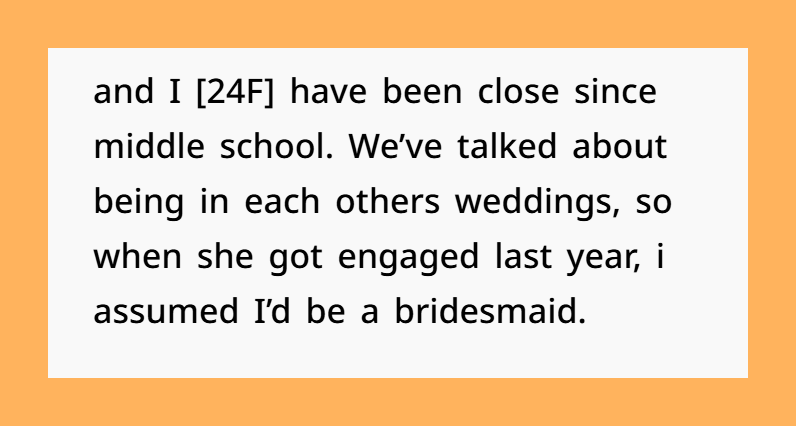

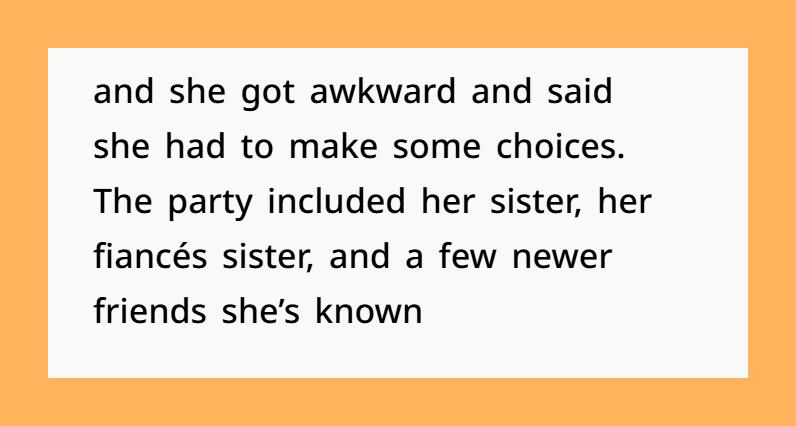




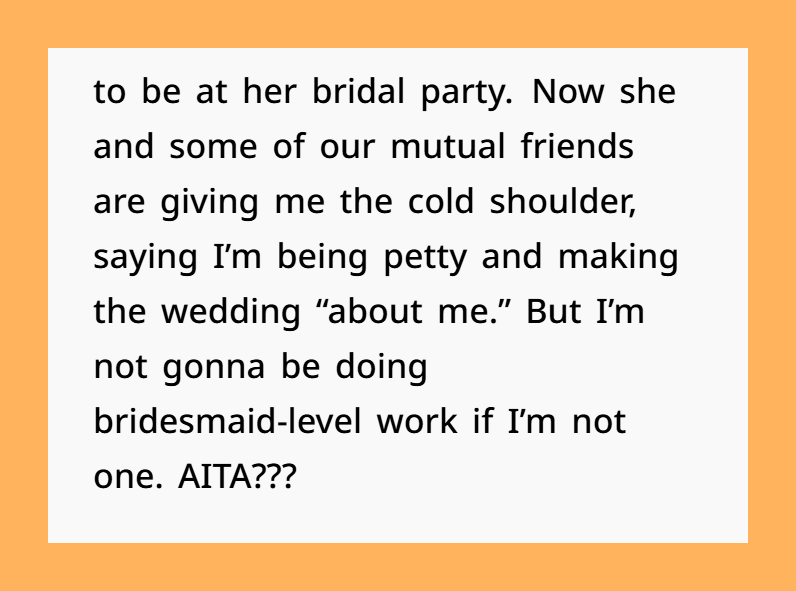
The Role and Expectations of Bridesmaids
Bridesmaids traditionally serve both symbolic and functional roles within weddings. Symbolically, they represent the bride’s closest confidantes. Functionally, they offer support through planning, dress shopping, and hosting events like bridal showers and bachelorette parties. While these roles have evolved with modern weddings, the expectation of emotional and logistical support often remains, making bridesmaid selection a sensitive process.

When someone who has long anticipated the role is left out, it can feel like an emotional snub—especially when they’re still expected to fulfill many of the same duties without the title, recognition, or inclusion in pre-wedding rituals. Experts on wedding etiquette, such as Emily Post and Martha Stewart Weddings, agree that while couples should be free to select their bridal party without pressure, transparency and tact are crucial to minimizing hurt feelings (source).
Emotional Labor and Unpaid Work in Weddings
The issue also underscores a broader conversation about emotional labor and unpaid work, especially common in weddings. Being asked to assist with planning, crafting, venue scouting, and other responsibilities typically reserved for bridal party members can lead to imbalanced relationships. According to therapist and writer Emily Nagoski, emotional labor—particularly when unreciprocated—can breed resentment and damage even longstanding friendships (source).
In this case, the friend’s request appears to assume the same level of commitment as a bridesmaid without offering the symbolic recognition that comes with the title. That disparity is a classic example of asking for labor without acknowledgment, which often leads to relational burnout.
Friendship Reciprocity and Boundaries
Reciprocity is a cornerstone of healthy adult friendships. While not all contributions can or should be transactional, major life events like weddings often bring these dynamics to the surface. Research from the Journal of Social and Personal Relationships indicates that perceived imbalance in effort and emotional investment can result in long-term dissatisfaction and relational deterioration (source).

The bride’s expectation for participation despite not granting a bridesmaid title may indicate a subconscious reliance on historical closeness rather than present acknowledgment. While wedding planning can be overwhelming, it doesn’t override the need to respect boundaries—particularly when those boundaries are articulated kindly and clearly.
Social Fallout and Group Dynamics
Another layer to this conflict is the group response. When mutual friends began siding with the bride and giving the narrator the cold shoulder, it introduced social pressure—a common stressor in tight-knit friend groups. According to group dynamics theory, individuals often conform to perceived group norms to avoid exclusion, even when it conflicts with personal values (source).
It’s likely the narrator’s boundary felt disruptive to the group narrative of “supporting the bride at all costs,” prompting backlash. However, establishing boundaries is a hallmark of mature relationships, especially when one’s efforts aren’t being reciprocated or respected.
Setting Reasonable Expectations in Wedding Planning
Brides-to-be can mitigate situations like this by managing expectations early. Open communication about why certain people are chosen (or not) for the bridal party, and how others can still be meaningfully involved, can preserve friendships. Meanwhile, friends who aren’t selected have every right to decline additional labor without feeling guilty.

A healthy middle ground might include inviting non-bridal party friends to specific pre-wedding events or simply asking if they want to contribute, rather than assigning tasks with implicit expectations.
The author later shared more context about the situation in the comments of her post, as it went viral
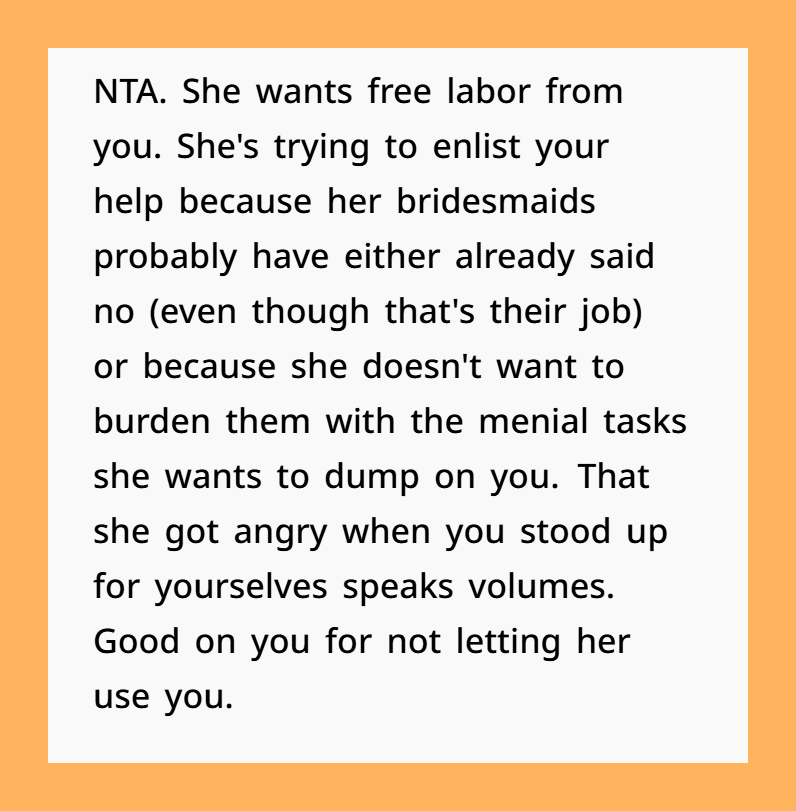
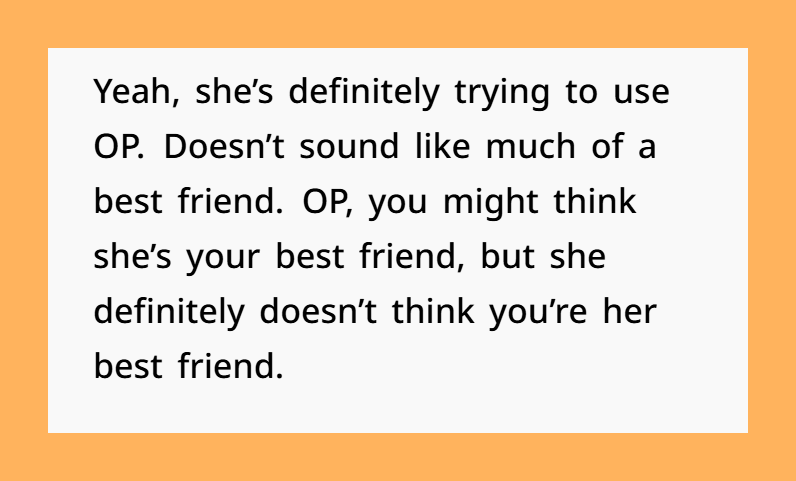

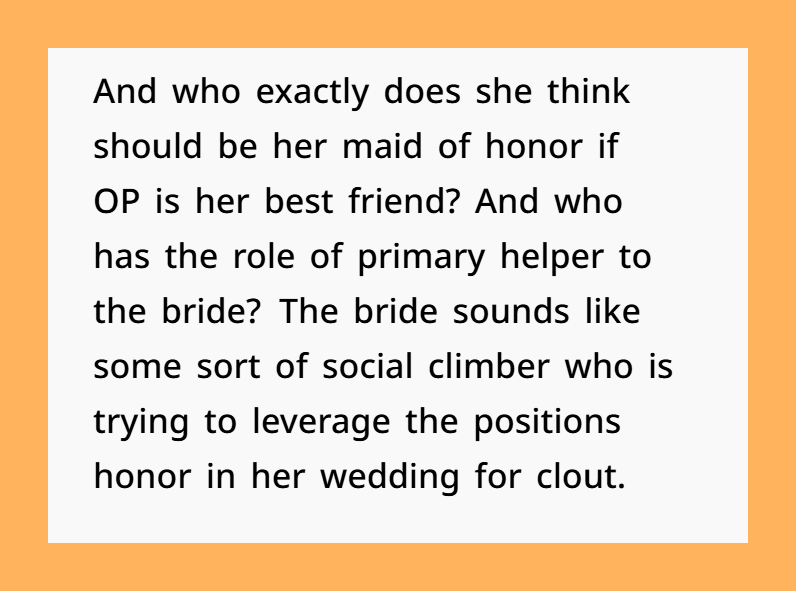
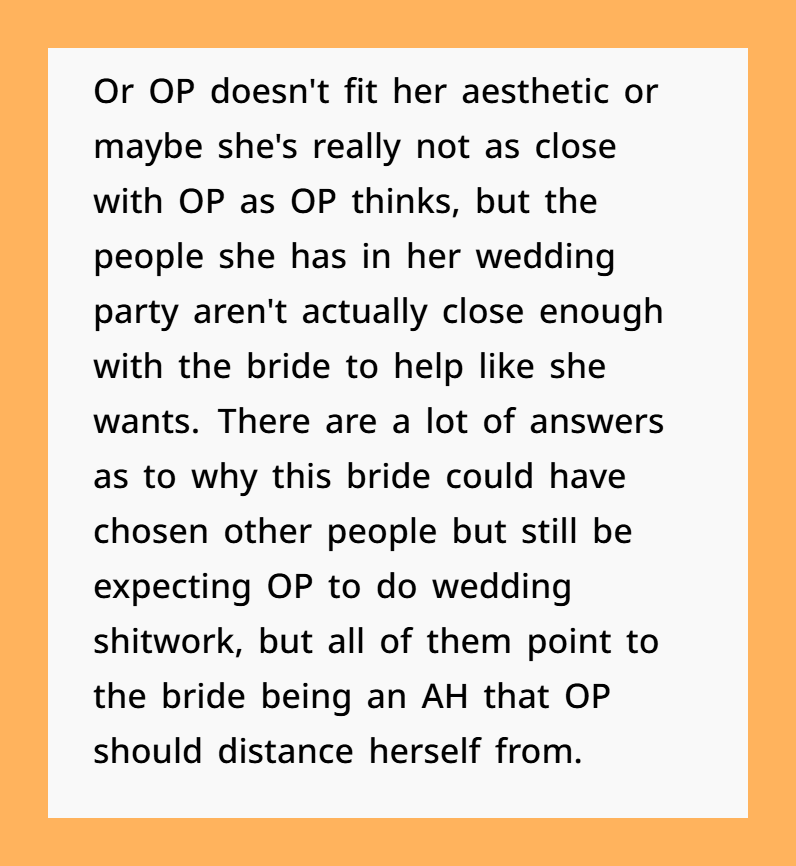
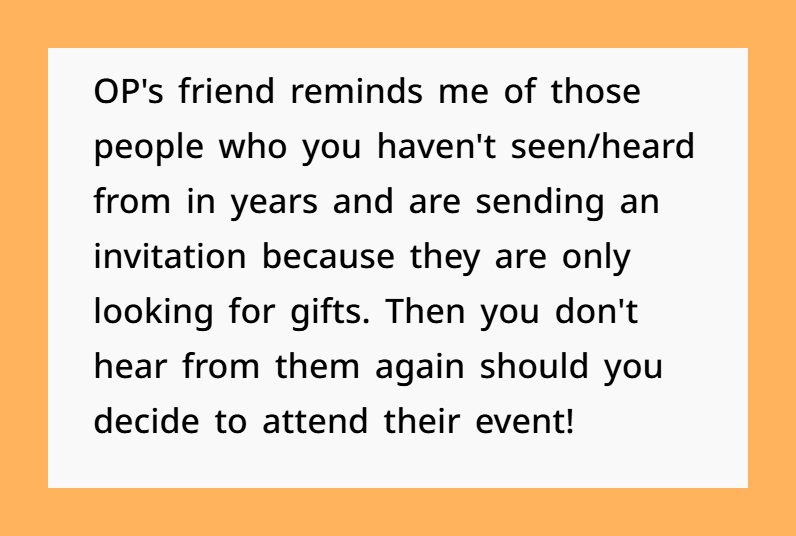
This scenario is a modern reminder that weddings can expose underlying tensions in friendships, especially when communication is lacking and emotional labor is unequally distributed. The narrator’s refusal to engage in bridesmaid-level support without the title is a reasonable boundary rooted in mutual respect and reciprocity. Rather than being petty, it’s a stance grounded in self-respect—one that more brides and friends should feel empowered to navigate openly.

